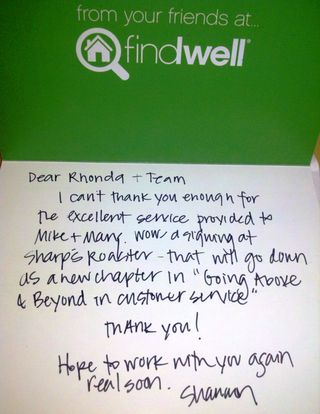It’s Monday and that means I’m sharing my weekly update on what may impact mortgage rates this week. Plus, I’m including solutions on what you can do if a seller is not wanting to pay your buyers agent’s commission, with the NAR Settlement.
Mortgage Rate Update for the Week of August 12, 2024
What’s Happening with Real Estate Agent Commissions?
 Last Friday, NAR (the National Association of Realtors) announced a settlement which included a major change to real estate commissions. This settlement still needs court approval to be finalized.
Last Friday, NAR (the National Association of Realtors) announced a settlement which included a major change to real estate commissions. This settlement still needs court approval to be finalized.
Several media sources have been spreading misinformation about commissions with headlines including that buyers agents will no longer be compensated. This is far from accurate. [Read more…]
Seattle Real Estate Chat: When your Real Estate Agent or Mortgage Originator “wears two hats” [Video] #SeattleREchat
Our most recent episode of Seattle Real Estate Chat focused on real estate agents or lenders who wear two hats. Jim Reppond of Coldwell Banker Danforth and I discuss transactions where a buyers lender is also their real estate agent OR when the buyer works with the listing agent (listing agent is both sellers agent and buyers agent). Sometimes a buyer may believe the listing agent is working for them, when the listing agent may only be working for the seller. It can be a complicated situation.
More Listing Agents Performing “Sniff Test” on Mortgage Originators
 I’m noticing that more listing agents are performing, what I like to call, “sniff test” to check out the lender who has prepared the preapproval letter. By the way, I think this is an excellent idea. This is especially true if the listing agent is reviewing multiple offers, which is happening more in the greater Seattle area with non-distressed homes that are desirable and priced right.
I’m noticing that more listing agents are performing, what I like to call, “sniff test” to check out the lender who has prepared the preapproval letter. By the way, I think this is an excellent idea. This is especially true if the listing agent is reviewing multiple offers, which is happening more in the greater Seattle area with non-distressed homes that are desirable and priced right.
The sniff test is typically a phone call by the listing agent so they can get an idea about the mortgage originator. The listing agent should not ask personal information about the potential home buyer (such as credit scores or available funds).
When a listing agent contacts me, I know they’re sizing up:
- how quickly I returned their phone call or email
- how experienced I am at closing my clients specific mortgage program (for example, Fannie Mae Homepath, Freddie Mac Homesteps or FHA transactions)
- how long I’ve been in the mortgage industry (over 12 years at Mortgage Master Service Corporation)
- how quickly we can close by
- to learn more about our company (family owned and operated since 1976)
I’ve heard from many local real estate agents that they need to make sure the loan can actually close. Often times, a preapproval letter may not be worth more than the paper it’s written on if the mortgage originator has not done their homework with the actual preapproval. NOTE: you are NOT preapproved unless you have provided your mortgage originator your income and asset documentation.
I wrote about “investigating your preapproval letter” many years ago at Rain City Guide. The issue with preapproval letters then was probably that anybody and their brother was a mortgage originator back in 2007. Now there are far less mortgage originators however, if the mortgage originator works at a bank or credit union, they may still lack experience (they’re not required to be licensed). A licensed mortgage originator may be new to the industry as well. Some large internet mortgage companies have been hiring LO’s who can pass the national exam but still lack experience. There’s a big difference between being a good a passing exams and successfully closing loans.
While the number of mortgage originators is dramatically down, it’s still important to make sure your mortgage originator has the capability to see your transaction to closing. It may be a consideration to make sure your mortgage originator can pass a sniff test.
Seattle Bidding Wars: What You Need to Know to Help “Win” Your Home
I’m noticing more “bidding wars” on new listings in the greater Seattle-Bellevue area. Because of the lack of non-distressed inventory and current low interest rates, multiple offers may occur driving the sales price higher than the original offered price. Sellers and listing agents may try to create an environment for a bidding war by slightly delaying the review of offers and by pricing the home either at or slighltly under what may considered “market value”.
Here are a few tips to remember should you find yourself in a possible “bidding war”.
Be prepared to provide a strong offer. Get preapproved early. This will help you know how much you qualify for and the seller will most likely require a strong preapproval letter that illustrates you are strongly qualified and that your loan will successfully close.
Determine your financial boundaries. What is the most you want to pay for the home and for your monthly mortgage payment? Bidding wars can be charged with emotion – keep your financial goals in mind.
I often will provide several preapproval letters at staggered amounts for clients when they’re getting ready to make an offer. The letters might start at their preferred offer price and go up to the limit of their financial comfort zone is (of course they have to for that amount).
Work with a reputable lender. It is not unusual for listing agents to contact the mortgage originator to confirm the preapproval letter and to do a “sniff test” of your mortgage originator. If the listing agent is comparing two offers that are essentially the same, the mortgage originator may be a deciding factor.
Consider a shorter time period for closing. Depending on the seller’s situation, for example if the home is vacant, a shorter closing might help you win the bid. Contact your mortgage originator to see what time frame they can realistically close a transaction before writing an offer for a quick close.
Don’t forget the appraisal. Regardless of what you and five other bidders are willing to pay for a home, it still needs to appraise based on what other homes like have recently sold and closed for. The seller does not have to accept a lower appraised value. Your lender will rely on the lower of the appraised value or sales price for your mortgage scenario.
Making a non-contingent offer. Sometimes a real estate agent may suggest that you need to make an offer “non-contingent”. Consider how much earnest money you’re willing to lose if something happens where you elect not to proceed with your transaction (for example, if your appraisal comes in lower than the sales price and you’ve waived your financing contingency). NOTE: making an offer non-contingent on financing may be less risky depending on your personal scenario.
Be prepared to do your home inspection prior to making an offer. It’s not unusal for greater Seattle area homes that are preparing a bidding war to request inspections be done prior to your offer. This will also help you make your offer “less contingent” it’s not subject to an inspection.
Being as prepared as possible may help give you an advantage over other offers. The sellers and listing agent wants to be assured that what ever transaction they select in a multiple offer situation has the best odds of successfully closing.
I am happy to assist you with your preapproval and financing of your next home located anywhere in Washington state. I have been originating mortgages, including conventional, FHA and VA at family owned and operated Mortgage Master Service Corporation since April 2000. We are a well respected correspondent lender established in 1976 by the Porter family.
What Do You Need for a Preapproval?
 If you’re considering buying a home, many real estate agents and/or sellers will require a preapproval letter. A preapproval letter is different than being “prequalified”. Being prequalifed means that you have provided verbal information to a mortgage originator to get an idea of what you qualify for. Being preapproved means that you are providing documentation that supports the information you have provided. Income, employment, assets and credit are verified for a preapproval.
If you’re considering buying a home, many real estate agents and/or sellers will require a preapproval letter. A preapproval letter is different than being “prequalified”. Being prequalifed means that you have provided verbal information to a mortgage originator to get an idea of what you qualify for. Being preapproved means that you are providing documentation that supports the information you have provided. Income, employment, assets and credit are verified for a preapproval.
Some preapproval letters aren’t worth the paper they’re written on. Especially if the mortgage originator you’re working with does not require supporting documentation before preparing the letter. If you have not provided supporting documentation (listed below) to your mortgage originator – you’re probably just prequalified and not actually preapproved.
Here is a list of documents you may be required to provide in order to obtain a preapproval:
“Going Above and Beyond” is Doing Our Jobs
 I received a really nice thank you card from Shannon Ressler at Findwell Realty last week that I want to share with you. We recently helped Shannon’s clients buy a vintage bungalow that was a short sell in the Magnolia neighborhood of Seattle using an FHA insured mortgage. Being a short sell and an FHA insured loan, there was no shortage of paper work and the transaction was coming “down to the wire”. [Read more…]
I received a really nice thank you card from Shannon Ressler at Findwell Realty last week that I want to share with you. We recently helped Shannon’s clients buy a vintage bungalow that was a short sell in the Magnolia neighborhood of Seattle using an FHA insured mortgage. Being a short sell and an FHA insured loan, there was no shortage of paper work and the transaction was coming “down to the wire”. [Read more…]








Recent Comments